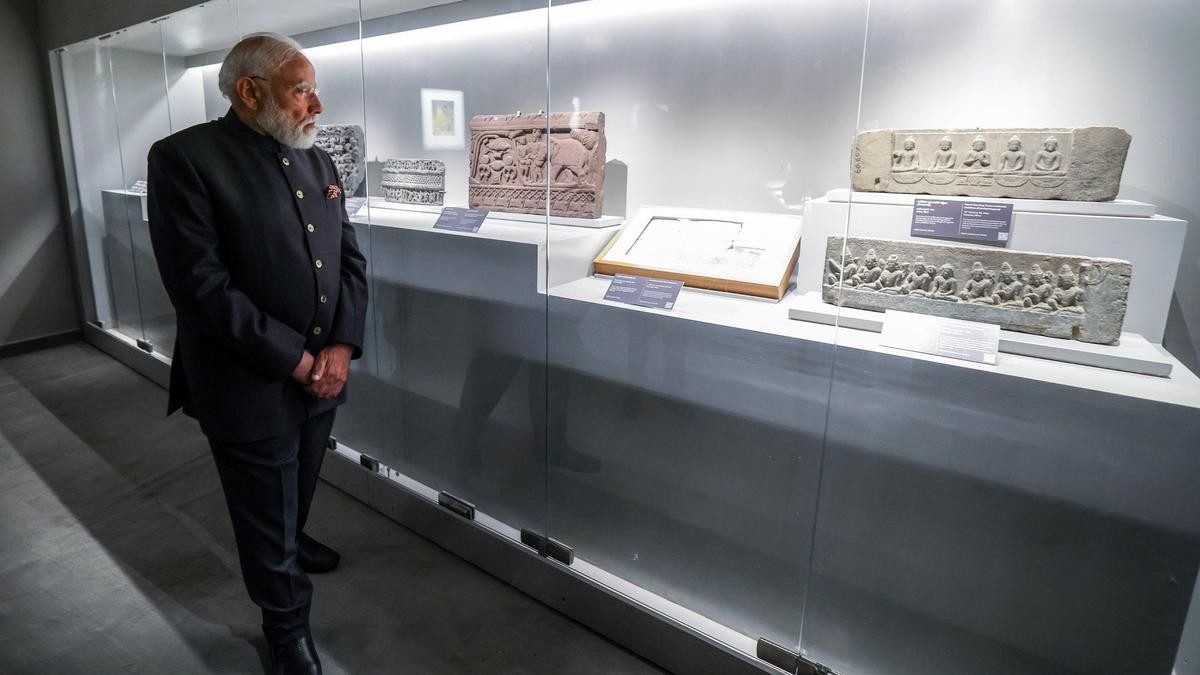



SEBI has eased regulations to simplify compliance and boost the market. Key changes encourage startups to list in India by allowing promoters to hold ESOPs when filing a DRHP. The new rules also relax norms for delisting public sector undertakings and aim to facilitate greater foreign investment in government bonds.

Copyright infringement not intended
Picture Courtesy: BUSINESS-STANDARD
The Securities and Exchange Board of India (SEBI) has announced reforms to simplify compliance, encourage domestic and foreign investment.
Easing Norms for IPOs and 'Reverse-Flipping'
SEBI has removed the rule that made promoters and founders ineligible to hold Employee Stock Options (ESOPs) at the time of filing for an Initial Public Offering (IPO). Now, they can retain ESOPs that were granted at least one year before filing the Draft Red Herring Prospectus (DRHP).
SEBI now allows shares held by certain institutional investors, like venture capital funds, Alternative Investment Funds (AIFs), and public financial institutions, to be counted towards the minimum promoter contribution required for an IPO.
The mandatory one-year lock-in period for shares received from the conversion of Compulsorily Convertible Securities (CCS) has been scrapped.
Streamlining Delisting for Public Sector Undertakings (PSUs)
To support the government's strategic disinvestment agenda, SEBI has created a simplified exit route for certain PSUs.
A simplified, fixed-price mechanism has been introduced for the delisting of PSUs where the government's shareholding is 90% or more. This is an alternative to the more complex reverse book-building process.
This relaxation does not apply to strategically important financial sector PSUs like banks, NBFCs, and insurance companies. It is expected to benefit a small number of listed PSUs (around five) with very low public shareholding.
Attracting Foreign Investment in Government Bonds
A separate, dedicated category has been created for Foreign Portfolio Investors (FPIs) who invest exclusively in Indian Government Securities (G-Secs).
Know Your Customer (KYC) norms for these FPIs will be aligned with the less stringent RBI regulations. They will not be required to make granular disclosures about their investor groups and will have a longer timeline to report material changes.
Easing Compliance for Market Intermediaries
SEBI has withdrawn its proposal that required entities like merchant bankers and custodians to hive off their non-core or unregulated business activities into separate legal entities. While they can continue these activities, they must now clearly disclose to clients if a particular service (e.g., dealing in unlisted shares) is not regulated by any financial regulator.
Other Key Decisions
Settlement Schemes => SEBI has introduced one-time settlement schemes for brokers involved in the National Spot Exchange (NSEL) scam and for venture capital funds that may have violated certain norms, providing a window to close old cases.
Dematerialisation Mandate => Key personnel, such as senior management of a company going for an IPO, must now hold their shares in dematerialized (demat) form before the DRHP is filed.
Clearing Corporations => SEBI has formed a working group to ensure transparency in the fees charged by clearing corporations, stating that such charges cannot be a "black-box."
Source:
|
PRACTICE QUESTION Q. Which one of the following is correct about the term "reverse flipping": A) A strategy to rapidly sell a company for profit. B) The process of shifting a foreign-domiciled company's headquarters back to India. C) When a public company becomes a private entity. D) The transfer of a company's assets to a foreign subsidiary. Answer: B Explanation: Flipping is a term used to describe the trend where Indian startups would move their headquarters and legal domicile to a foreign country, such as Singapore or the United States. Reverse Flipping is the act of undoing the original "flip." It is the process where a company that had previously moved its domicile overseas decides to shift its legal base and headquarters back to India. |






© 2026 iasgyan. All right reserved